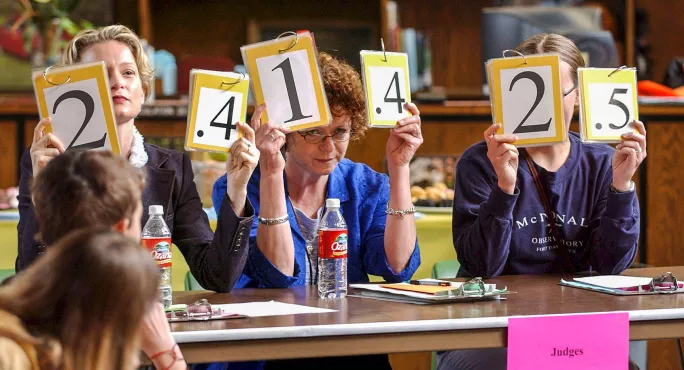What to do if you think part of an exam paper was not marked

For most students, A-level or GCSE results day is a celebration of their achievements. But, as every subject leader knows, there are those baffling grades that fall short of their - and your - expectations.
These require immediate investigation and further action - especially when university places are at stake. This will often lead to a review of marking and all that entails.
But sometimes it can be the case that a portion of a paper is not marked and not picked up by the Awarding Body’s (ABs) quality-control sampling, thus accounting for the lower-than-expected score a student has received.
Although it’s a rare occurrence, it is worth having in the back of your mind on results day. So what should you do if you think this has happened?
How do you investigate?
All ABs provide a post-results analysis on their secure websites. If you are new to the role or the awarding body, it pays to ensure that you have access to the system and know how to use it well before August.
Once in the system, the AB’s online results analysis will show the pattern of marks, which is where you can track down potential omissions.
You should skim quickly through the data to locate candidates who have underperformed in a specific paper and investigate each question or section.
If electronic data is unavailable, you can still see whether students performed significantly worse on one paper from the subject-specific marksheets downloaded by senior leaders the day before. This will help focus your investigation.
For example, if there are questions that have been given 0 marks or even an N or NR (for questions not attempted) it’s worth asking the student how they remember performing on the day.
Teachers know of instances where students have forgotten to turn the page, thus missing questions.
When marks are surprisingly low for an extended answer it might be that a student started an answer, got stuck, moved on to the next question and then forgot to return to the original one. Or they might have come back but didn’t continue their response in the right box. There will also be those who ran out of time and didn’t finish a paper.
But that’s not always obvious either: these days students often go for higher-tariff questions first to maximise their access to marks, so you won’t necessarily see all the early questions attempted and the last left untouched.
Analysing scripts
However, if students are adamant they attempted all questions and finished the paper, and you would have expected them to get marks on those questions, then it is time to get their signed permission so that you can read their answers online.
If the AB requires examiners to annotate or at least tick every page as they mark, it should be easy to spot any pages that contain neither of these - and assume they have not been read or assessed.
It’s much harder if no annotations are visible. You will then need to decide whether the mark awarded is a fair reflection of the whole answer, or whether there seems to be more substance than has been credited by the examiner.
Because it isn’t clear whether the response is under-rewarded or a section missed by the examiner, the only safe option is a review of marking (RoM).
- GCSE resits: everything you need to know
- Grade boundaries: what are they and how do they work?
- A-level results day 2024: everything you need to know
Which service should you apply for?
A clerical re-check available for both GCSE and A level is supposed to check that all of the exam has been marked - and is certainly cheapest at between £9.05 to £12.50, depending on the AB.
If the re-check shows that marking or administrative errors have been made and the student’s result is incorrect, the exam board is required to change the mark to correct the error. The changed mark can be higher or lower than the original mark. In some cases, this may affect the overall qualification grade, which will then also be changed.
It can take up to 10 calendar days and may not unearth omissions if there are no annotations.
The safest option when a university place is concerned is the priority review of marking which costs between £55 and £75.75 per unit depending on the AB, and includes a clerical re-check that must be completed within 15 calendar days.
For GCSE there is only the RoM, which includes the clerical re-check, costing between £42 and £61.50 per paper, taking 20 calendar days.
Ultimately, missed or incomplete marking is a rare occurrence - but it can happen. So it’s worth being aware of and knowing what to do if a student’s score has come up strangely short and needs investigating.
Yvonne Williams has taught for more than 30 years, and was a member of the Department for Education Marking Policy Review Group, which looked at teacher workload in 2015-16
For the latest education news and analysis delivered directly to your inbox every weekday morning, sign up to the Tes Daily newsletter
Register with Tes and you can read two free articles every month plus you'll have access to our range of award-winning newsletters.
Keep reading with our special offer!
You’ve reached your limit of free articles this month.
- Unlimited access to all Tes magazine content
- Save your favourite articles and gift them to your colleagues
- Exclusive subscriber-only stories
- Over 200,000 archived articles
- Unlimited access to all Tes magazine content
- Save your favourite articles and gift them to your colleagues
- Exclusive subscriber-only stories
- Over 200,000 archived articles
topics in this article



